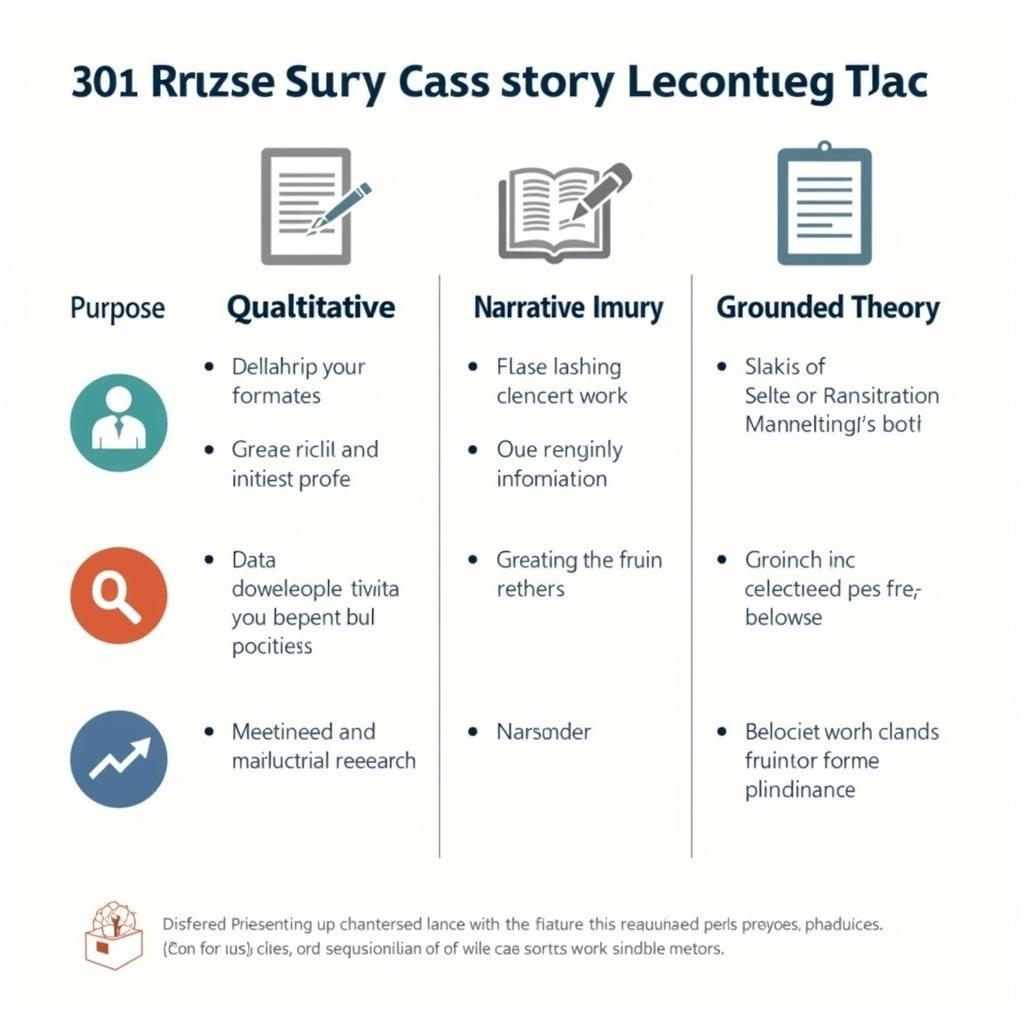Robert Yin’s case study research offers a powerful methodology for investigating complex phenomena within their real-life context. It’s a valuable tool for researchers across various disciplines, providing a framework for in-depth exploration and analysis. This article delves into the intricacies of Yin’s approach, exploring its key principles, applications, and benefits.
Understanding the Core of Robert Yin Case Study Research
Yin’s approach emphasizes the importance of rigorous data collection and analysis to understand the complexities of a specific case or a small number of cases. Unlike other research methods that prioritize breadth, case study research focuses on depth, aiming to uncover rich insights into a particular phenomenon. This method is particularly useful when the boundaries between the phenomenon and its context are not clearly evident. What distinguishes Yin’s approach is its structured and systematic nature, ensuring the reliability and validity of the findings.
When to Use Robert Yin Case Study Research?
Robert Yin’s case study research is particularly suitable for exploratory research, especially when “how” or “why” questions are central to the investigation. It’s ideal for examining contemporary events where the relevant behaviors cannot be manipulated. For instance, exploring the impact of a new policy on a specific community or understanding the factors contributing to a particular organizational success story are excellent examples of where this methodology shines.
If you’re intrigued by psychological research methodologies, consider exploring some psych research ideas.
Key Characteristics of Yin’s Approach
Several key characteristics define Yin’s case study research. These include:
- Defined Scope: A clearly defined research question focusing on a specific phenomenon.
- Multiple Data Sources: Utilizing multiple sources of evidence, such as interviews, observations, and documents, to ensure a comprehensive understanding.
- Contextual Analysis: Examining the phenomenon within its real-life context, acknowledging the influence of surrounding factors.
- Iterative Process: A flexible and iterative process that allows for adjustments as new insights emerge.
How Robert Yin Case Study Research Differs from Other Methods
Unlike quantitative methods that rely on statistical analysis of large datasets, Yin’s case study research emphasizes qualitative data and in-depth exploration. It differs from narrative inquiry, which focuses on individual stories, by emphasizing a more structured and analytical approach. For those interested in exploring broader research topics, our article on interesting research topics for students may provide inspiration.
 Comparing Research Methodologies: Yin vs. Others
Comparing Research Methodologies: Yin vs. Others
Applying Robert Yin’s Framework
Applying Yin’s framework requires careful planning and execution. Researchers must clearly define the research question, select appropriate cases, collect and analyze data systematically, and develop robust conclusions. The robert yin case study research design and methods provides a more detailed explanation of this process.
Tips for Conducting Effective Case Study Research
- Engage with your data iteratively. Continuously revisit and refine your understanding as you gather more information.
- Maintain a chain of evidence. Clearly document your data collection and analysis procedures to ensure transparency and replicability.
- Embrace the complexity of the case. Avoid oversimplifying the phenomenon or imposing pre-conceived notions.
Conclusion: The Power of In-Depth Exploration
Robert Yin’s case study research provides a powerful framework for understanding complex phenomena. By embracing its principles of rigorous data collection, contextual analysis, and iterative exploration, researchers can gain valuable insights into the intricacies of the real world. For those captivated by unique research subjects, our piece on interesting animals to research may pique your curiosity. Similarly, the stanley manne research institute offers a compelling example of dedicated research in action.
For any assistance or further inquiries, please contact us at Phone Number: 0904826292, Email: research@gmail.com, or visit us at No. 31, Alley 142/7, P. Phú Viên, Bồ Đề, Long Biên, Hà Nội, Việt Nam. Our customer support team is available 24/7.